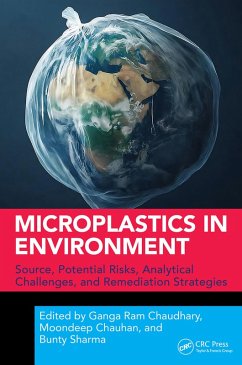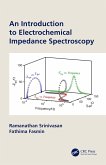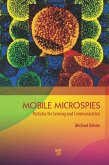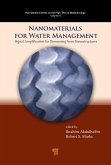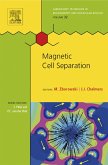Microplastics in Environment (eBook, PDF)
Source, Potential Risks, Analytical Challenges, and Remediation Strategies
Redaktion: Ram Chaudhary, Ganga; Sharma, Bunty; Chauhan, Moondeep
51,95 €
51,95 €
inkl. MwSt.
Sofort per Download lieferbar

26 °P sammeln
51,95 €
Als Download kaufen

51,95 €
inkl. MwSt.
Sofort per Download lieferbar

26 °P sammeln
Jetzt verschenken
Alle Infos zum eBook verschenken
51,95 €
inkl. MwSt.
Sofort per Download lieferbar
Alle Infos zum eBook verschenken

26 °P sammeln
Microplastics in Environment (eBook, PDF)
Source, Potential Risks, Analytical Challenges, and Remediation Strategies
Redaktion: Ram Chaudhary, Ganga; Sharma, Bunty; Chauhan, Moondeep
- Format: PDF
- Merkliste
- Auf die Merkliste
- Bewerten Bewerten
- Teilen
- Produkt teilen
- Produkterinnerung
- Produkterinnerung

Bitte loggen Sie sich zunächst in Ihr Kundenkonto ein oder registrieren Sie sich bei
bücher.de, um das eBook-Abo tolino select nutzen zu können.
Hier können Sie sich einloggen
Hier können Sie sich einloggen
Sie sind bereits eingeloggt. Klicken Sie auf 2. tolino select Abo, um fortzufahren.

Bitte loggen Sie sich zunächst in Ihr Kundenkonto ein oder registrieren Sie sich bei bücher.de, um das eBook-Abo tolino select nutzen zu können.
"Microplastics in Environment" comprehensively explores the growing concern surrounding microplastic pollution. From their emergence as a significant environmental pollutant to their potential risks and various remediation strategies, this book delves into every aspect of microplastics' impact on ecosystems and human health.
- Geräte: PC
- mit Kopierschutz
- eBook Hilfe
Andere Kunden interessierten sich auch für
![Microplastics in Environment (eBook, ePUB) Microplastics in Environment (eBook, ePUB)]() Microplastics in Environment (eBook, ePUB)51,95 €
Microplastics in Environment (eBook, ePUB)51,95 €![General Analytical Chemistry (eBook, PDF) General Analytical Chemistry (eBook, PDF)]() Jean-Louis BurgotGeneral Analytical Chemistry (eBook, PDF)51,95 €
Jean-Louis BurgotGeneral Analytical Chemistry (eBook, PDF)51,95 €![Marine Analytical Chemistry (eBook, PDF) Marine Analytical Chemistry (eBook, PDF)]() Marine Analytical Chemistry (eBook, PDF)53,95 €
Marine Analytical Chemistry (eBook, PDF)53,95 €![An Introduction to Electrochemical Impedance Spectroscopy (eBook, PDF) An Introduction to Electrochemical Impedance Spectroscopy (eBook, PDF)]() Ramanathan SrinivasanAn Introduction to Electrochemical Impedance Spectroscopy (eBook, PDF)48,95 €
Ramanathan SrinivasanAn Introduction to Electrochemical Impedance Spectroscopy (eBook, PDF)48,95 €![Mobile Microspies (eBook, PDF) Mobile Microspies (eBook, PDF)]() Michael KöhlerMobile Microspies (eBook, PDF)87,95 €
Michael KöhlerMobile Microspies (eBook, PDF)87,95 €![Nanomaterials for Water Management (eBook, PDF) Nanomaterials for Water Management (eBook, PDF)]() Nanomaterials for Water Management (eBook, PDF)100,95 €
Nanomaterials for Water Management (eBook, PDF)100,95 €![Magnetic Cell Separation (eBook, PDF) Magnetic Cell Separation (eBook, PDF)]() Magnetic Cell Separation (eBook, PDF)67,95 €
Magnetic Cell Separation (eBook, PDF)67,95 €-
-
-
"Microplastics in Environment" comprehensively explores the growing concern surrounding microplastic pollution. From their emergence as a significant environmental pollutant to their potential risks and various remediation strategies, this book delves into every aspect of microplastics' impact on ecosystems and human health.
Dieser Download kann aus rechtlichen Gründen nur mit Rechnungsadresse in A, B, BG, CY, CZ, D, DK, EW, E, FIN, F, GR, HR, H, IRL, I, LT, L, LR, M, NL, PL, P, R, S, SLO, SK ausgeliefert werden.
Produktdetails
- Produktdetails
- Verlag: Taylor & Francis
- Seitenzahl: 282
- Erscheinungstermin: 15. November 2024
- Englisch
- ISBN-13: 9781040185230
- Artikelnr.: 72274583
- Verlag: Taylor & Francis
- Seitenzahl: 282
- Erscheinungstermin: 15. November 2024
- Englisch
- ISBN-13: 9781040185230
- Artikelnr.: 72274583
- Herstellerkennzeichnung Die Herstellerinformationen sind derzeit nicht verfügbar.
Professor Ganga Ram Chaudhary (analytical chemist) has more than 20 years of experience in the fabrication of functionalized nanomaterials/membranes/biopolymers via green methods and exploring their potential applications for the elimination of contaminants from wastewater, as catalyst and as electrochemical sensors and as an alternate to plastic materials. He has published over 204 publications (Patents: 5; Publications: 175; Book/Book Chapter: 24) in the reputed journals and publication houses. Presently, he is heading the Sophisticated Analytical Instrumentation Facility (SAIF) and Central Instrumentation Laboratory (CIL) which equips him with the deeper understanding, knowledge, and skills required to address the analytical challenges/solution associated with the detection of microplastic. He is also engaged in consultancy projects in Himachal Pradesh and Panjab industrial regions regarding the evaluation of processing parameters to upgrade the CETP (common effluent treatment plant) and achieve the goal of zero liquid discharge, mitigation of pollution and sustainable development for the treatment of wastewater from pharmaceutical, electroplating, textile and personal care products. Dr. Moondeep Chauhan (Environmental Scientist) received his Doctoral degree in Environmental Studies from Panjab University in 2020. From 2020 to 2022, he worked as a Post-doctoral BIRAC innovation fellow at E-YUVA center, Panjab University. Thereafter, he worked as a research scientist in the Sophisticated Analytical Instrumentation Facility/Central Instrumentation Lab (SAIF/CIL), Panjab University. Currently, he is working as an assistant professor cum scientist in the central instrumentation facility, and Department of Environment Science at Amity University, Punjab. His current research interests include the development of nano-catalysts and electrochemical sensors for applications in the field of energy and environment. He is actively engaged in the synthesis of functionalized nanomaterials/membranes via green methods and exploring their potential applications for the elimination of contaminants from wastewater and has published over 25 research articles, including 6 book chapters and 2 patents (1 granted). Also, he is engaged in consultancy projects for the treatment of wastewater from pharmaceutical, electroplating, textile and personal care products. Dr. Bunty Sharma received his Doctoral degree in Chemistry from Panjab University, India and during Ph.D. worked at the School of Pharmacy, University of Nottingham, UK (commonwealth scholarship). He has published 13 research articles in reputed peer-reviewed journals, 6 book chapters, and filed 3 Indian patents including 2 granted patents. He has vast experience in handling various analytical techniques that are used for the characterization of micro or nanoparticles. Currently, he is working as a research specialist in Molekule Group Inc. Florida, USA. Before this, he worked as a research officer in the School of Biochemistry and Cell Biology, at University College Cork, Ireland. Besides this, he is working in a team to provide consultancy to the Industries for Effluent treatment plant of Panjab, Himachal Pradesh region of India.
Microplastics Pollution: An Overview of the Global Crisis. The Emergence
Chemical Nature
Classification
and Properties of Microplastics. Identifying and Characterizing Microplastics. Unraveling the Microplastic Mystery: Computational Insights
Real-World Cases
and the Road Ahead. Monitoring Microplastics and Nanoplastics in a Marine Realm. Microplastic in Soils: Sources
Fate
Toxicity
and Remediation Technologies. Airborne Microplastics: Sources
Characteristics
Dynamics
and Health Implications. Household Microplastic Pollutants: A Potential Contributor to Indoor Microplastics Pollution. Adverse Impact of Microplastics on Animal Health. Novel Remediation Pathways for Mitigating Microplastic Pollution. Emerging Frontiers in Environmental Biotechnology: Bridging Gaps to Confront the Microplastic Menace. Biodecomposition of Microplastics: A Sustainable Approach for Microplastic Waste Management. Plastic Recycling: Current Trends
Challenges
and Opportunities. Microplastics in the Environment: Current Consensus and Future Trends. Closing the Loop on Microplastics: Sources
Risks
Analysis
and Path Forward
Chemical Nature
Classification
and Properties of Microplastics. Identifying and Characterizing Microplastics. Unraveling the Microplastic Mystery: Computational Insights
Real-World Cases
and the Road Ahead. Monitoring Microplastics and Nanoplastics in a Marine Realm. Microplastic in Soils: Sources
Fate
Toxicity
and Remediation Technologies. Airborne Microplastics: Sources
Characteristics
Dynamics
and Health Implications. Household Microplastic Pollutants: A Potential Contributor to Indoor Microplastics Pollution. Adverse Impact of Microplastics on Animal Health. Novel Remediation Pathways for Mitigating Microplastic Pollution. Emerging Frontiers in Environmental Biotechnology: Bridging Gaps to Confront the Microplastic Menace. Biodecomposition of Microplastics: A Sustainable Approach for Microplastic Waste Management. Plastic Recycling: Current Trends
Challenges
and Opportunities. Microplastics in the Environment: Current Consensus and Future Trends. Closing the Loop on Microplastics: Sources
Risks
Analysis
and Path Forward
Microplastics Pollution: An Overview of the Global Crisis. The Emergence
Chemical Nature
Classification
and Properties of Microplastics. Identifying and Characterizing Microplastics. Unraveling the Microplastic Mystery: Computational Insights
Real-World Cases
and the Road Ahead. Monitoring Microplastics and Nanoplastics in a Marine Realm. Microplastic in Soils: Sources
Fate
Toxicity
and Remediation Technologies. Airborne Microplastics: Sources
Characteristics
Dynamics
and Health Implications. Household Microplastic Pollutants: A Potential Contributor to Indoor Microplastics Pollution. Adverse Impact of Microplastics on Animal Health. Novel Remediation Pathways for Mitigating Microplastic Pollution. Emerging Frontiers in Environmental Biotechnology: Bridging Gaps to Confront the Microplastic Menace. Biodecomposition of Microplastics: A Sustainable Approach for Microplastic Waste Management. Plastic Recycling: Current Trends
Challenges
and Opportunities. Microplastics in the Environment: Current Consensus and Future Trends. Closing the Loop on Microplastics: Sources
Risks
Analysis
and Path Forward
Chemical Nature
Classification
and Properties of Microplastics. Identifying and Characterizing Microplastics. Unraveling the Microplastic Mystery: Computational Insights
Real-World Cases
and the Road Ahead. Monitoring Microplastics and Nanoplastics in a Marine Realm. Microplastic in Soils: Sources
Fate
Toxicity
and Remediation Technologies. Airborne Microplastics: Sources
Characteristics
Dynamics
and Health Implications. Household Microplastic Pollutants: A Potential Contributor to Indoor Microplastics Pollution. Adverse Impact of Microplastics on Animal Health. Novel Remediation Pathways for Mitigating Microplastic Pollution. Emerging Frontiers in Environmental Biotechnology: Bridging Gaps to Confront the Microplastic Menace. Biodecomposition of Microplastics: A Sustainable Approach for Microplastic Waste Management. Plastic Recycling: Current Trends
Challenges
and Opportunities. Microplastics in the Environment: Current Consensus and Future Trends. Closing the Loop on Microplastics: Sources
Risks
Analysis
and Path Forward
